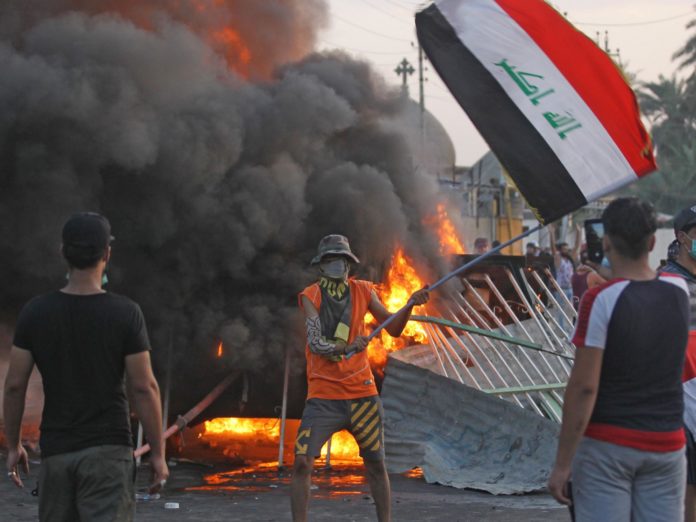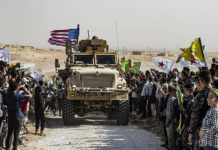Iraq is in the border of a complete Civil War and while the United Nations called already multiple times for an end to the violence (not that this can do a lot), anti-government rallies are taking over the country. What is going on and who is behind this wave of violence? Are Western Powers to blame?
WHAT HAPPENED?
1 – Anti-Government protesters are attacking state-run buildings, houses, destroying everything on the streets, burning cars … demanding the fall of the established government in Baghdad.
2 – The death toll already surpassed 100 while the rallies do not look to stop anytime soon. While security forces try to control the violence, most of the questions are inside the government. How can they solve this situation? Is this another Arab Spring?
3 – Since ISIS “stopped” being a concern for Iraq after the “defeat” of the group by a coalition of foreign armies with the United States and Russia as leaders, Iraq could never regain stability.
4 – According to sources in Iraq, most of the riots are led by young male citizens that are tired of corruption and lack of justice.
5 – Moqtada al-Sadr’s, leader of a militia group, might be the key for the future of this country. With his power in Congress (54) he keeps blocking resolutions that are against those who demand a change.
6 – If the attempt succeeds, the PM Adel Abdul-Mahdi, will have to resign and will likely have to escape the country.
IS CORRUPTION THE ONLY PROBLEM?
No. Authorities took advantage of the reconstruction period, something that is supposed to take at least 10 years of stability. This would be enough to bring back the refugees, contain economy and solve housing and other main problems as potable water and medicine supply. None of these issues were approached in the last months and with 22% of unemployment for the 5th oil producer and exporter worldwide, and the second-largest OPEC producer … is hard to understand.
At the same time, many focus their eyes on the US. Once again, troops leave without a proper process of rebirth for these places in the Middle East. The same can happen to Syria, Afghanistan, and Yemen. Lebanon and Jordan will probably feel the effects of Iraq’s situation and Egypt will face a challenge in order to maintain stability in an already questioned government.
The United States might have to deal with an increase in the violence towards Western Civilizations if a proper process of democracy is not being developed in Iraq. This country, the same that loathed Saddam Hussein, can easily fall in the hands of another dictatorship that will probably create more confusion all over the Middle East. Is there a solution to this? Should the White House have approached this situation better?











